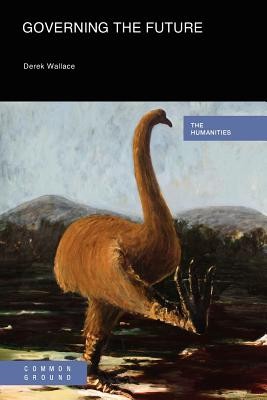
- We will send in 10–14 business days.
- Author: Derek Wallace
- Publisher: Common Ground Publishing
- Year: 2011
- Pages: 180
- ISBN-10: 1863358587
- ISBN-13: 9781863358583
- Format: 15.6 x 23.4 x 1 cm, minkšti viršeliai
- Language: English
- SAVE -10% with code: EXTRA
Reviews
Description
Since the Second World War, state administrations of all stripes have sought social stability by privileging the economic - first, through central planning, grounded in confidence in the achievability of human mastery over space and change; then through neo-liberalism, driven by an a-temporal faith in the collective benefits of maximizing individual choice. Both emphases have been equally hubristic, and devastating for the planet. This book inquires into the influencing factors as well as the practical realizations of this project at the level of national state organization and decision-making, with particular reference to Western liberal democracies, using New Zealand as a case study. In its latter stages, the book moves towards an exploration of the prospects and opportunities for a more balanced and realistic approach to managing the future - one that takes into account the demands of sustainable well-being for all. The experience of the last thirty years - characterized by a retreat from central planning followed by a partial return - and the fuller understanding of the limits of government action made possible by that experience make it an appropriate moment for a study of this kind.
EXTRA 10 % discount with code: EXTRA
The promotion ends in 23d.18:57:30
The discount code is valid when purchasing from 10 €. Discounts do not stack.
- Author: Derek Wallace
- Publisher: Common Ground Publishing
- Year: 2011
- Pages: 180
- ISBN-10: 1863358587
- ISBN-13: 9781863358583
- Format: 15.6 x 23.4 x 1 cm, minkšti viršeliai
- Language: English English
Since the Second World War, state administrations of all stripes have sought social stability by privileging the economic - first, through central planning, grounded in confidence in the achievability of human mastery over space and change; then through neo-liberalism, driven by an a-temporal faith in the collective benefits of maximizing individual choice. Both emphases have been equally hubristic, and devastating for the planet. This book inquires into the influencing factors as well as the practical realizations of this project at the level of national state organization and decision-making, with particular reference to Western liberal democracies, using New Zealand as a case study. In its latter stages, the book moves towards an exploration of the prospects and opportunities for a more balanced and realistic approach to managing the future - one that takes into account the demands of sustainable well-being for all. The experience of the last thirty years - characterized by a retreat from central planning followed by a partial return - and the fuller understanding of the limits of government action made possible by that experience make it an appropriate moment for a study of this kind.


Reviews